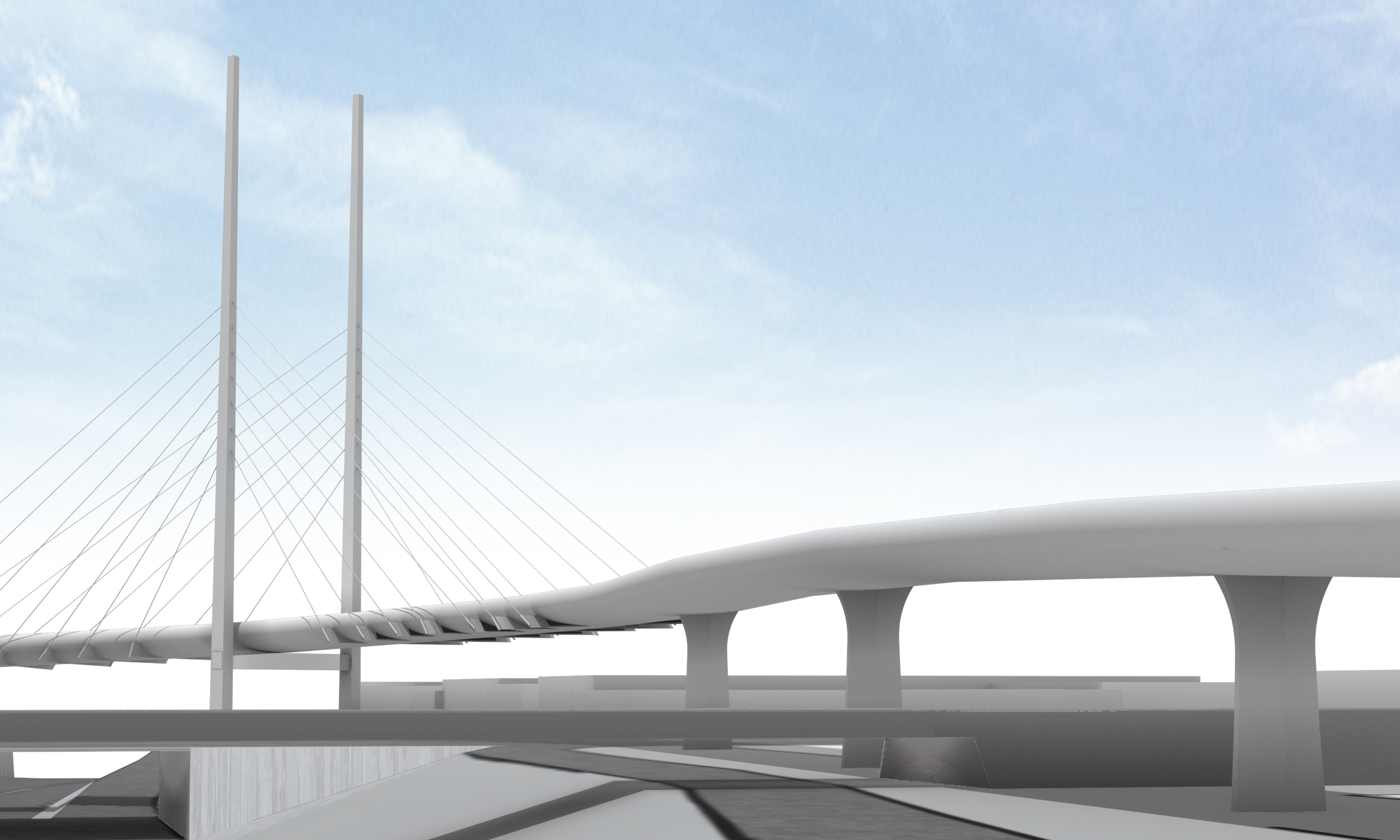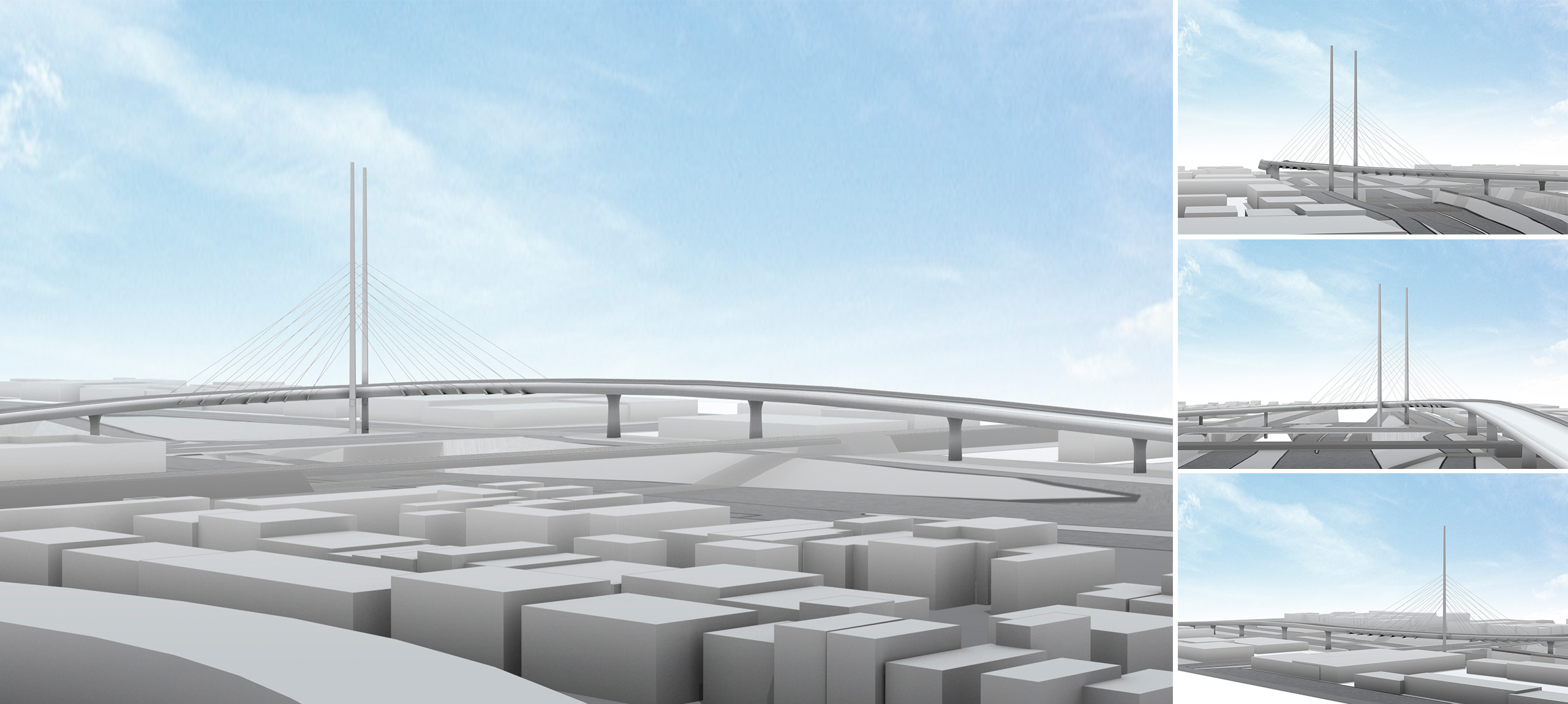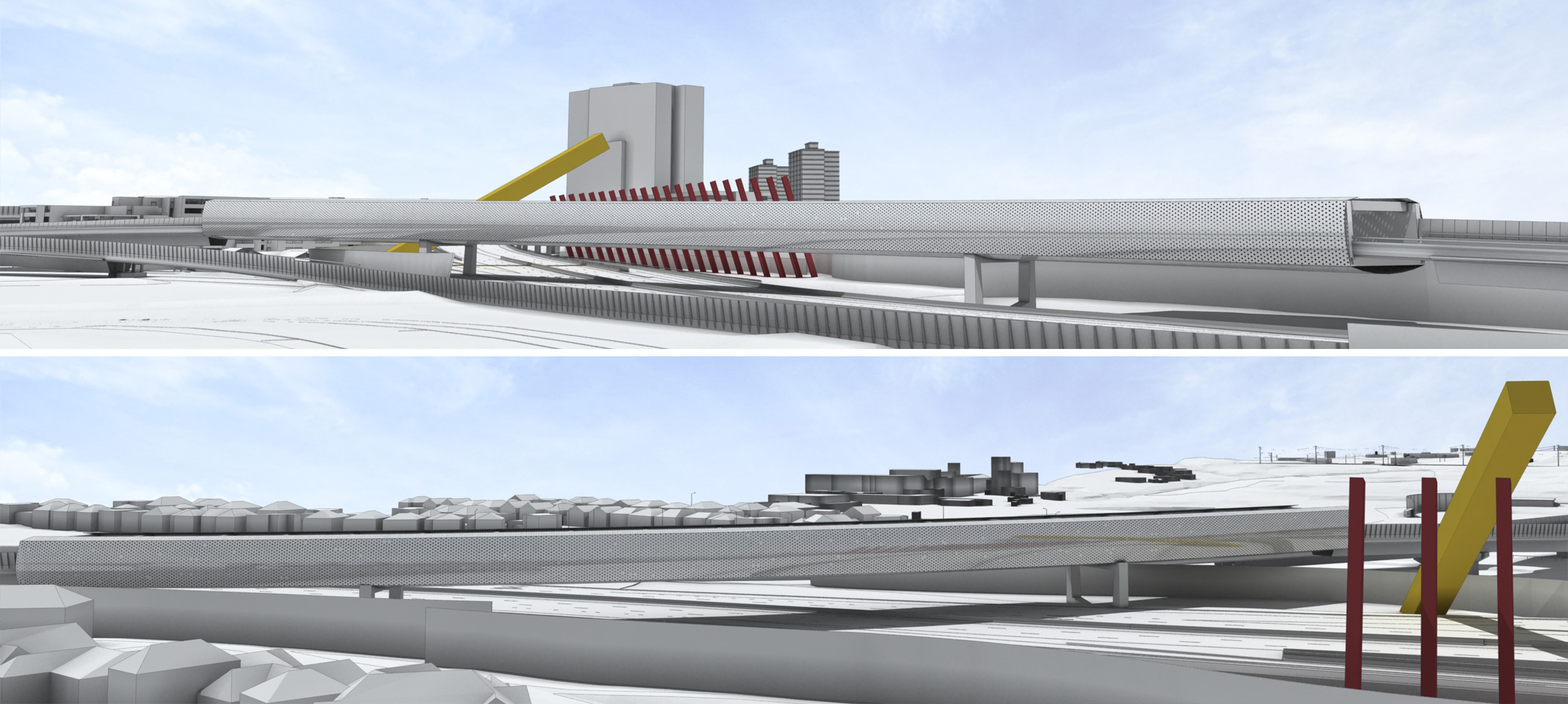
| East-West Link | |
| Melbourne, Australia | |
| Typologie | Cable Stay Bridges |
| Date | Février, 2014 |
| Mission | Tender design |
| Constructeur | John Holland, Leighton Contractors and Dragados Joint Venture |
FHECOR Ingenieros Consultores carried out the study of alternatives and tender design project of two bridges for the new East-West Link in Melbourne, as requested by John Holland, Leighton Contractors and Dragados Joint Venture. They consist of two urban bridges designed to become iconic landmarks for the city: a cable statyed bridge over the East-West Link and Hoddle St. Interchange, and a tube shaped steel truss over the City Link Highway.
The first structure consists of a viaduct 546 m long with two main spans cable stayed. These two main spans are conditioned by the crossing over the Hoddle St. and the East - West Link, and the curve of R = 90 m of the alignment in plan. The total length is distributed in 2 main spans 88m long, 6 approach spans 50m long and 2 exterior spans 35m long.
The span distribution allows the crossing over some existing bridges (the Hoddle St. and the railway bridge ones) with an adequate vertical clearance, especially over the tracks of the existing railway bridge.
The cross section of the bridge consists of a composite deck of 14 m wide at approach spans and 18 m wide at the two main spans. The structural section is a steel box 1.75 deep and a 25 cm thick concrete slab, and it is cover by a stainless steel architectural cladding all along the bridge. At the external side of the curve in plan a noise barrier has been foreseen.
The first structure consists of a viaduct 546 m long with two main spans cable stayed. These two main spans are conditioned by the crossing over the Hoddle St. and the East - West Link, and the curve of R = 90 m of the alignment in plan. The total length is distributed in 2 main spans 88m long, 6 approach spans 50m long and 2 exterior spans 35m long.
The span distribution allows the crossing over some existing bridges (the Hoddle St. and the railway bridge ones) with an adequate vertical clearance, especially over the tracks of the existing railway bridge.
The cross section of the bridge consists of a composite deck of 14 m wide at approach spans and 18 m wide at the two main spans. The structural section is a steel box 1.75 deep and a 25 cm thick concrete slab, and it is cover by a stainless steel architectural cladding all along the bridge. At the external side of the curve in plan a noise barrier has been foreseen.




